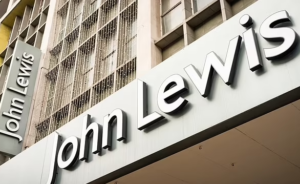Did you know the credit card concept came from a sci-fi, time-travel novel by Edward Bellamy, published nearly 150 years ago? The first pay later type payment card was launched by American Airlines and the Air Transport Association in 1934. Much more ahead!
With credit costs rising, businesses are turning to BNPL loans from digital lenders like Melio to improve cashflow with with vendor invoices repaid in 12 monthly installments. Larry Diamond, Zip Co-founder and CEO, turned over domestic Australia business to Cynthia Scott while Diamond focuses on its US operations. John Lewis UK retail CEO expects the company to introduce its BNPL offer for customers within a year. NZ regulators will require credit reports for BNPL users when new rules are put in place at year-end.
Finextra looks at the negative impact of aggressive collections, higher interest and late fees on UK BNPL users. So, does BNPL increase financial inclusion? It depends mostly on financial literacy and proper use by consumers. A PYMNTS analysis estimates better credit scores could help some consumers gain up to $1,700 through better interest rates and lower borrowing costs.

Businesses to seek BNPL loans as credit costs jump
Melio launched Pay Over Time, a credit option that enables small businesses to pay vendors and other bills in monthly installments, while invoices get paid upfront in full. Working with business-credit provider Credit Key, Melio lends up to $50,000 to businesses via their Melio account, payable over 12 monthly installments. Melio is trying to streamline merchant credit by embedding the BNPL option directly into its existing payment gateway as a button at the point of sale. American Banker

Co-Founder Larry Diamond resigns as Zip AUS CEO
Australian BNPL provider Zip promoted Cynthia Scott, the head of its domestic business, to replace co-founder Larry Diamond as chief executive. The ASX-listed company said that Scott, who was chief executive of Zip’s Australia and New Zealand business since November 2021, would become group CEO immediately. Diamond will remain CEO of Zip’s US business. MarketWatch

John Lewis CEO says customers want to buy now pay later
John Lewis CEO expects the UK mid-market retail chain to offer its customers Klarna-style buy-now-pay-later (BNPL) deals in future. Speaking exclusively to The Mail on Sunday, Nish Kankiwala, who was appointed as the John Lewis and Waitrose group’s first-ever CEO in March, said: ‘I think we will develop a buy-now-pay-later product. Especially in the younger generation, people expect it.’ This is Money

NZ Commerce and Consumer Affairs Minister David Webb details new BNPL review
In addition to a review of BNPL regulations, the announcement included a teaser about a wider review of consumer finance regulations, noting “it’s important to keep the CCCFA up to date to ensure it continues to strike the right balance between protecting vulnerable consumers and having a healthy and effective market for credit.” BNPL operators must provide a credit report but not a more detailed creditworthiness review. Lexology

The dark side of fintech: BNPL’s negative impact on financial well being
Almost a third of the UK’s 10 million BNPL users reported that their repayment plans are unmanageable, according to Barclays in February 2022, driving home the destructive nature of BNPL during the current cost of living crisis. With aggressive collection practises, high late fees, and without affordability checks, unregulated BNPL giants could tarnish fintech’s legacy. 36% of UK consumers have used BNPL with an average loan size of £191 ($242). Finextra

Does BNPL enhance financial inclusion?
BNPL schemes enable underbanked and unbanked communities to purchase goods that may otherwise have been unaffordable to them, but they also boast several other advantages that make it convenient for consumers and an advantage for retailers. Its easy-to-access, interest-free installments enable greater access to credit for consumers with low to no income, but with opportunity comes responsibility. Consumers must make informed financial decisions to avoid overextending themselves. Nation World

Better credit scores could put $1,700 in consumers’ pockets
Helping low-credit and deep subprime consumers improve their credit scores can allow them the opportunity to escape from high-interest-rate loans and help raise their living standards. According to PYMNTS’ analysis, if deep subprime consumers — those with credit scores of 579 or less — raise their credit scores to near prime levels, they could increase their borrowing capacity by 68% of their income. Doing so allows them to finance an additional $44,000 worth of purchases. PYMNTS

Credit card history: A sci-fi writer created the concept 150 years ago
Buy now, pay later goes back to at least 1934, when American Airlines and the Air Transport Association issued the first Air Travel Card where travelers could pay later for their trips. When the first universal credit card was introduced in 1950 by Diners’ Club, it was intended as a charge card for travel and entertainment expenses. US writer Edward Bellamy first created the credit card idea in his sci-fi, time-travel novel Looking Backward 2000-1887. Money Control



